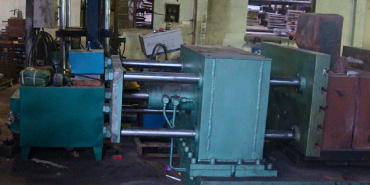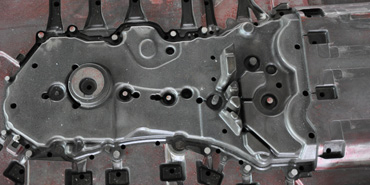If you want to avoid die casting defects and other problems then die casting temperature control is a real issue. When it comes to temperature and the consequences of poor temperature control while die casting like Aluminum Die Casting, it becomes necessary to understand the difference between metals.
Temperature Effects on Aluminum Die Casting
For metal die casting Aluminum is one of the most popular choices. It has good corrosion resistance, is lightweight and durable. For die casting the most popular aluminum alloys are 360, 380 and 413.
For example, for Aluminum 380, you’ll see a tensile strength of 48 at 75 degrees and yield strength of 24. Yield strengths range from 41 KSI down to 18 KSI for 500 degree in case of Aluminum Die Casting Process 390.
How Thermal Factors affect Die Casting
In die casting the thermal factors are the temperature of the die casting machine, the temperature of the alloy used for casting and the temperature of the die itself. For the highest-quality parts all of these factors must be kept in an optimum temperature range.
Temperature Needed for Die Casting
If you don’t want to put a strain on the mold, then you definitely want the alloy to be about 50 to 70 degrees F higher than the initial crystallization temperature. At about a third of the alloy temperature the mold itself needs to be maintained. It is quite complex to calculate the correct temperature for the casting chamber and it needs to be determined by the casting engineer.
Effects of Temperature in Die Casting
In general, in die casted alloys from Aluminum Die Casting Manufacturer as
temperatures increase, tensile and yield strengths decrease. You need to keep
this fact in your mind if you need parts with high tensile strength. Along with
this, with the increase in temperature ductility increases, but changes rely on
the type of alloy being die casted. For example, aluminum is less ductile than
zinc, but in the process temperature must be higher for aluminum.







